Desolated Read online
Page 5
Pilar said, “This makes me sick.”
Dev nodded. “I thought we were done with it. I’ve been too complacent.”
“Not your fault,” said Joan. “Not anyone’s. There was no reason to foresee this. And we had plenty to keep us busy trying to survive. There wasn’t a lot of time for drilling with bows and so on.”
“My dad can kill anything with the crossbow,” C.J. boasted. “I can use it too.”
Sierra said, “Can you draw it on your own now?”
He shot an angry glare at her.
Sierra didn’t appear to let it bother her. “I just meant, that’s something you can work on when we train in weapons. Maybe you’re getting strong enough to do that now.”
He looked to his father.
Curt said, “Maybe. We’ll talk about it later.”
Dev said, “Short-term, we need volunteers to keep watch tonight out on the main highway. A team of two, a couple of shifts. Who has the best eyes among the young people?”
Zoe’s was one of the hands that shot up. She did have good vision. So did Dev. Sierra was a bit nearsighted in one eye though swore she hadn’t started to lose her close-in vision yet. Joan had, but the Morrows, whose house it was before it was hers, had a drawer full of reading glasses, and so she had found one that worked pretty well for her. Good thing, for she did a lot of the sewing for the neighborhood.
They set up not two but three shifts for the night watch. Days were long, nights short, so no one would lose much sleep. One analog watch survived in the neighborhood, formerly Mr. Morrow’s, an early 20th century pocket watch that worked as long as you wound it. They didn’t need it typically, but they’d pull it out for tonight’s use. It didn’t need to be right, but it could be used to mark off a shift.
Curt cleared his throat. “There’s one more thing we should all be thinking about,” he said. “We’ve talked before about heading for a cooler place. Maybe it’s time to revisit that idea.”
Chapter 8
Sierra couldn’t sleep. She knew her daughter was out on the highway standing watch. She couldn’t help but worry about Zoe, despite that she was an adult, and despite that she was hardly in more danger out there than everyone was back here in their beds.
She climbed out of bed, careful not to wake Georgia. She went to the kitchen, grabbed a pitcher, and walked all the way out to the pump to fill it. The moonlight illuminated the dry stream bed, and the dead bleached pines shone like a ghost forest. Maybe that’s what it was—a ghost forest, a ghost world.
The chickens were asleep and didn’t make a sound as she passed them, wearing only a stretched-out camisole and boxer underwear that had once been a t-shirt. No elastic—the waist had a tie that kept it from falling off.
She set the pitcher on the deck and went in to get a glass.
“Can’t sleep?” Her father’s voice made her start.
She touched her hand to her chest, feeling the racing heartbeat. Then she answered softly, “No. I have fresh water out on the deck.”
“Sounds good. Grab me a glass, and I’ll join you.” He went ahead of her.
She nudged the door shut behind her, poured them both water, and sat in her favorite spot. “I don’t think I woke Georgia.”
“C.J. sleeps like the dead once he’s down.”
“Don’t say ‘dead,’” she begged. “I’m so worried for my babies.”
“Hardly babies, either of them. But I know. I worry about them. And about you.”
“It never goes away? Worrying about your kids?”
“Never ever,” he said. “Even though I know you can take care of yourself better than I can take care of you.”
“What do you think is going to happen? With the military or whatever they are?”
“You ever heard of the mob? The Mafia?”
“Sure, I saw movies, but it’s been years since I thought about that kind of thing.”
“They used to do this scam called ‘protection.’”
“Yeah?” The water was cool and refreshing. The night was tolerable. And there were no mosquitoes or biting bugs of any sort. Sometimes, they got biting gnats at the end of winter, but not every year. It was far too hot and dry for mosquitoes. Small favors. A woman could sit in her underwear on the back deck and enjoy the cooler night.
“The mob would go around to stores in cities and ask for a payment, which they said was to protect them from bad guys. But it wasn’t the bad guys who were the problem. It was the mob itself. If you didn’t pay, you’d have your windows knocked out. If you didn’t pay the second time they asked, they might burn your store down.”
“Lovely,” she said, meaning the opposite. “Do you think that’s what these guys are doing?”
“I think maybe we should pay what they ask before they burn the store down.”
“We don’t have any to spare!” she said. “Look at us. We’re all skin and bones as it is.”
“I know,” he said. “My belly was almost uncomfortably full after that lunch. Rare enough that happens.” He sighed, and she could tell it was from pleasure, not worry. “It was good food, wasn’t it?”
“Our last happy meal before disaster.”
“Don’t say that,” he said. “You never know what the future brings. There are good meals ahead and maybe new friends—not these guys, obviously, but others. Maybe a third child for you.”
“Nuh-huh. No way, no how.”
“That’s your choice. I’m thrilled with the two you have.”
“I can’t wait for C.J. to grow up a little.”
“He will, and then you’ll wish he was a kid again.”
“Do you wish I was?”
“Tonight, I’m glad you’re a grown woman who is more than capable of taking care of herself.”
Which brought her mind around to her own adult daughter, standing watch on the highway. “I hope Zoe’s okay.”
“She will be. She knows what to do—run back and wake everybody if they come again.”
“Do you think they will?”
“Not tonight,” he said. “Speaking of worrying about people, do you think Arch is going to be okay?”
“I hope so,” she said. “I don’t want to lose anyone.”
“He and I and Joan are all getting up there.”
“Joan seems really healthy.”
“Yes. And I’m fine except an ache here and there.”
It was worse than an ache, obviously, but she didn’t argue with him. “My mind is spinning about these guys and what’s going to happen. I mean, I don’t know, can’t guess, but my brain won’t quit inventing terrible scenarios.”
“I know. Just try and let go of it. We can’t change the future. We can only prepare for a couple of futures that seem most likely.”
They sat in silence for a time.
“It’s funny,” he said, “how the moonlight dims the stars so much.”
“Still more stars than there used to be when you could see Payson’s light in the sky all the time.”
“Even Phoenix’s light polluted our skies,” he said. “And the trees used to be so thick and tall. We had a tiny window onto the sky back then.”
“Sure is pretty,” she said, taking a second off her worrying to appreciate the clear night sky.
“It is that.”
They sat watching the stars. A lone meteor streaked across the sky. “See that?” they both said together, and then they both laughed.
She said, “Do you think the world will heal from what we humans did to it? Will the pines recover? Will the stream flow again?”
“Absolutely. This particular forest might re-grow with something different than these pines, but there will be conifers here again.”
“How long do you think?”
“Oh, hundreds and hundreds of years, I would think. But it will bounce back.”
“I won’t be here to see it.”
“We’re both lucky we saw it at all before it was gone. And I feel lucky I lived half of my life when there was te
chnology that made life easier. Think of C.J. and Zoe, and Troy and Georgia and the rest of them. They’ve never heard a motor, or zipped through internet pages that showed them the world or a picture of a bacterium, or felt air conditioning soothing them after a long day’s work.”
“Air conditioning would be nice. The rest, I could live without.”
“Tonight’s pleasant. It’s probably all the way down to seventy-eight or so.”
“If Curt still had the thermometer, we could check that.”
“Are you two not at all a thing anymore? I mean, no chance at all of rekindling that?”
“No. I love him, of course, and I love Dev. But not like that. I think those days are done for me.”
“Don’t say that. Look at me and Joan. We still have our moments. I never planned for it, but I’m glad I got one last love.”
“I’m happy for you. I like how you guys are together. I like that it lasted.”
“At heart, I’m a one-woman man. I wish it had lasted with your mother. I wish it had lasted with a number of women I dated. Remember Lisette?”
“Barely,” she confessed, struggling to bring to mind a picture of the woman who had lived here right before all this happened. “I hope she made it through the violent times.”
“So do I.”
“So Joan ends up being the one woman who lasted.”
“It’s why I never wanted us to move in together. I was afraid that’d jinx it. I felt like a jinx on relationships back then.”
“Maybe you can move in together now.”
“No, we’re both too old and set in our ways.”
A noise at the barn made her start. She stood. “Who’s there?”
“It’s just me,” Troy called. “I’m going off watch, waking up Luke and Gustavo to take their turn.”
“Anything wrong out there?”
“No—quiet as can be. See you tomorrow.” He went inside.
“Means Zoe is headed home too,” Pilar said.
“Good. It’s not rational, but it makes me feel better to think of her safe in bed.”
“We need to get to bed too. There’s more deciding to do tomorrow. And more work, if we’re going to move food and seeds and maybe some canned food out to a secret cache. Digging in this rocky soil is not easy.”
She knew that from firsthand experience. She’d done far too much digging and hoeing in her life, too much clearing of trees and brush. Expanding their own garden into their lawn had been relatively easy compared to putting in the two grain fields. That had been one heck of a job. She imagined having to pull up stakes and move, carrying a sack of grain and a hoe on her back, pushing a wheelbarrow of potatoes and seeds, and starting all over someplace else.
It exhausted her to imagine it.
Exhaustion—a good mood to take her to bed. She wished her father goodnight and tiptoed into the room.
She hadn’t disturbed Georgia getting up, but now the young woman woke. “What?”
“Nothing. Sorry to wake you.”
“’K,” she said, rolling over and folding her pillow.
THEY MET AGAIN IN THE morning. People had “slept on it,” as instructed, and had developed new ideas. Joan and Misha were pressing for more food preservation.
“If we need to flee—”
Arch, who seemed better physically, interrupted. “I won’t leave my home.”
Joan said, “Maybe it will be necessary temporarily, for a week, Arch. We’ll need to eat, and we need canned foods.”
Pilar said, “Dehydrated would be better, and it’s the right time of year for that.”
This was so. With so few insects, and with the relentless heat, you could dry sliced vegetables in very few days. They had screens for that, and a few old sheets worn too thin to turn into clothing that they used to cover the vegetables laid out on screens. The screens would be put on sawhorses, and the sheets deterred rodents enough to let the vegetables dry.
Joan said, “Do we have time?”
“I imagine so,” Pilar said. “And we can carry a lot more dehydrated food than we can heavy jars.”
She said, “Okay. If you all want, my household will do that. Everybody, bring over several pounds and we’ll get to blanching. What you do you think, how many pounds per person for a day?”
“A pound?” Pilar guessed. “Dehydrated food, I mean.”
Dev said, “What about water? We have to carry water too. We’ve walked every foot for miles around, hunting and trapping, and we’ve never seen a running stream.”
Pilar said, “That’s heavy. And what do we have to carry water with? The canteens are a pretty pitiful collection.”
That was true. “Maybe a wheelbarrow—not of water but with water containers in it.”
Arch said again, “I’m not going to leave my home.”
Joan said to him, “No one wants to. But they have guns. We don’t. We can’t just stand here and get shot.”
Dev said, “If we’re forced to flee—and Dad, no, I don’t want to either, but we have to think of it—we’ll never get back what we have here. We need to think about two futures if we do hide from them, the temporary and the permanent. If we can’t come back, we need seeds with us. They might drive us out to strip what food is here, and we can return and plant here, or they might leave guards and we’ll have to plant elsewhere.”
“A couple of guards, we can take out with our bows,” Arch said.
“That’s so,” Dev said. “But if we’re going to consider fleeing with supplies, we should plan it so that we can survive for more than a week...or forever.”
Sierra worried. Without the houses, clothes, equipment, hen, remaining fruit trees, all of it, they might die. Unless they came upon a welcoming group, to leave their homes was to choose uncertainty at best...and maybe death. “I find myself in agreement with Arch. So he and I can work on training the younger people with the bows?”
Arch said, sounding more angry than grateful, “Thank you.”
“I’m no good with your bows, but I do know the principles. And I can do the scut work, setting up targets, retrieving arrows.” She and Arch nodded at each other.
“Back to what we’d take,” Rod said. “Grain will serve as both seed start long-term and food short-term. And there’s not a lot of moisture in it. It’s light. What if a couple of us go out and pick through the fields? It’s not all ripe, but there are patches that are.”
Curt said, “Because hunting has grown poorer over the years, I think we should try and save the hens. Or one hen, with eggs. Who has a brooder?”
Sierra did. “I can give her up for that.”
“C.J. can help me. We’ll knock together a small henhouse out beyond my cabin. Maybe a half-mile away should do it, keep it out of their sight.”
“Hey,” Pilar said, “I just thought of this. I think I have the dog carrying case from way back stored in the attic still. That’d be a way to carry a couple of hens up there, or if we had to flee with them. I’ll look for it.”
Dev said, “We all need to think about blankets and how to maximize their carrying potential. I know I have a small backpack still, which maybe Nina or C.J. can use, but we’re going to be hauling all this stuff on our backs. How?”
Joan said, “We have baskets, rope. We can tie them onto our backs.”
Sierra glanced at Arch again and saw him frowning. His disease made him weak in the afternoons, and he might be nearly as worried about keeping up with the younger people as he was about defending his land. Her father had his limits as well. She said, “We need to only go as fast as the slowest person. Whether that’s Brandie because she’s pregnant, or Nina because her legs are shortest, or Pilar, we need to remember that we have limits.”
Troy said, “We could always split up into two groups. The faster group goes ahead and makes camp for the night.”
Joan said, “I don’t know that we want to walk more than a day’s hike away at first. If they leave, we want to come right back. If not, or if they come searching for
us, we’ll need to move on.”
Arch said, “We should leave someone to spy on them. I still don’t want to abandon our homes, not even for a day, but you all seem hell-bent on it.”
Pilar said, “We may be overreacting, of course. Maybe we can negotiate with these people, hand over the tax without complaint.”
Yasmin spoke up. “We should have a system for hiding things right now—most of our stores. If they come, and if their tax ends up being a portion of what we have, we need to make them think we have less than we do.”
Pilar said, “Good thinking.”
Sierra said, “Easy enough to store more food in our root cellars. And in the new one we dig out in the woods.”
Troy said, “We’ll get on that. Misha, is it okay if Brandie works at stuff like carrying and digging? I mean, with the baby and everything?”
“If there’s lighter duty, I’d feel better about that. Brandie, you can move the dirt away in gallon-sized buckets, not too heavy. Something like that. Or you can join us in dehydrating food, or harvest grain. Those are probably the easiest jobs today, and there’s no reason risking your doing more.” She’d probably be fine, but a miscarriage could be deadly in this new world.
They talked for another quarter-hour, prioritizing tasks, and everybody went off to complete their assigned work. Arch and Sierra, now without anyone to teach bow skills, both agreed to work on their own gardens as they normally would. Nina would take care of her family’s farm.
They went to work with a renewed energy. It was hard work, and the day was blistering hot, but no one complained.
Chapter 9
A week later, everything was done to prepare for what they thought were the most likely scenarios. They were back to their regular routine, with a couple of changes.
The eggs out in the hidden henhouse were on the verge of hatching, and they’d all set up a rotating schedule for brooding, so that there would always be a hen sitting on eggs out there, along with another hen from the same flock for company. They’d rotate chicks and their mother back to their own place, and someone else’s hen would sit on her eggs out in the hidden henhouse.

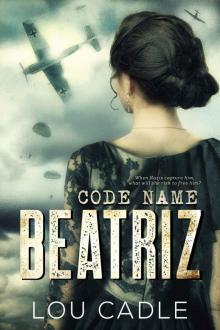 Code Name- Beatriz
Code Name- Beatriz Oil Apocalypse Collection
Oil Apocalypse Collection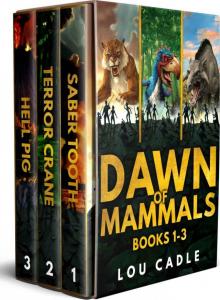 A Dawn of Mammals Collection
A Dawn of Mammals Collection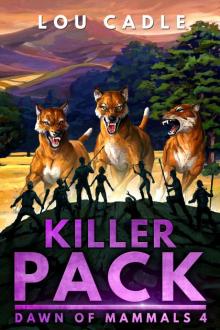 Killer Pack (Dawn of Mammals Book 4)
Killer Pack (Dawn of Mammals Book 4)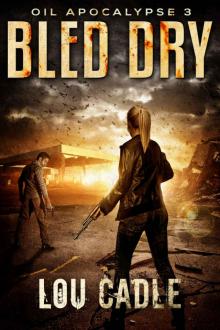 Bled Dry
Bled Dry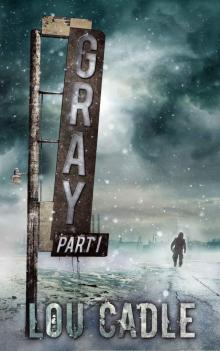 Gray (Book 1)
Gray (Book 1) Dawn of Mammals (Book 4): Killer Pack
Dawn of Mammals (Book 4): Killer Pack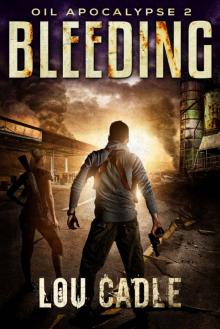 Bleeding (Oil Apocalypse Book 2)
Bleeding (Oil Apocalypse Book 2)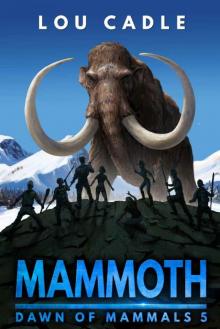 Dawn of Mammals (Book 5): Mammoth
Dawn of Mammals (Book 5): Mammoth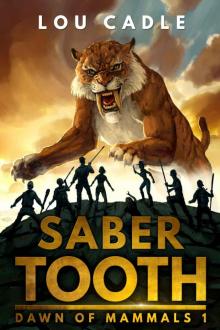 Saber Tooth (Dawn of Mammals Book 1)
Saber Tooth (Dawn of Mammals Book 1)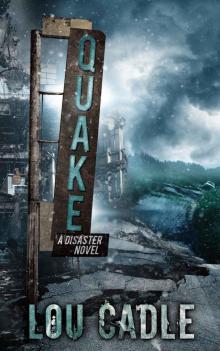 Natural Disaster (Book 2): Quake
Natural Disaster (Book 2): Quake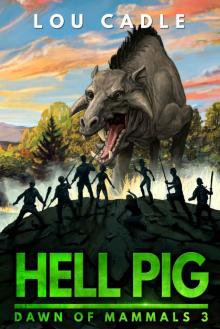 Hell Pig (Dawn of Mammals Book 3)
Hell Pig (Dawn of Mammals Book 3)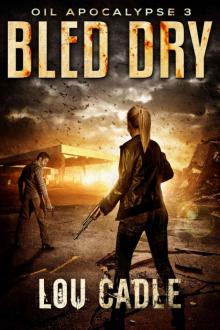 Bled Dry (Oil Apocalypse Book 3)
Bled Dry (Oil Apocalypse Book 3)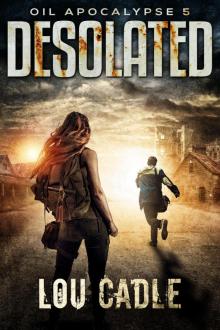 Desolated
Desolated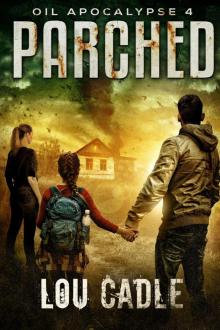 Parched
Parched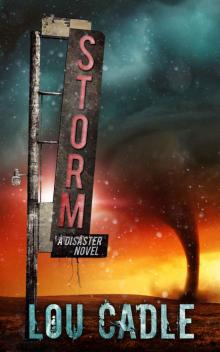 Natural Disaster (Book 3): Storm
Natural Disaster (Book 3): Storm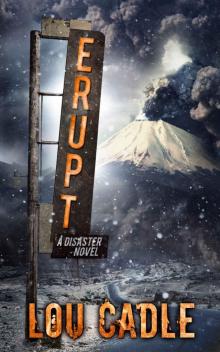 Natural Disaster (Book 1): Erupt
Natural Disaster (Book 1): Erupt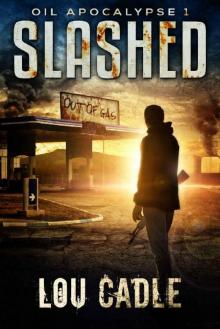 Slashed (Oil Apocalypse Book 1)
Slashed (Oil Apocalypse Book 1)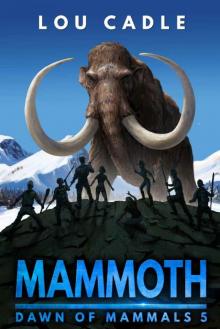 Mammoth (Dawn of Mammals Book 5)
Mammoth (Dawn of Mammals Book 5)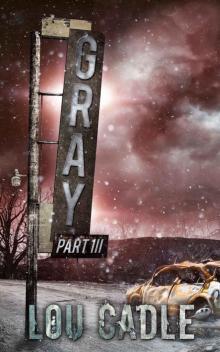 Gray (Book 3)
Gray (Book 3)